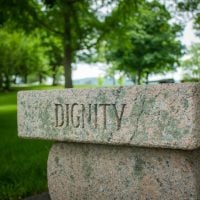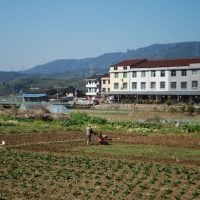Deadline: 9-Mar-23
Internews’ EJN is offering organizational grants of $5,000 to $15,000 to media outlets, NGOs, academic institutions, and other interested groups to support media and journalism activities related to the Amazon Region in Brazil, Colombia, Ecuador and Peru.
Journalists, independent media outlets and environmental defenders, already constrained by a lack of economic resources and training, are often confronted with violence and threats to their security. In this context, it is important to improve local media’s capacity to safely produce accurate and in-depth coverage of environmental issues in the Amazon region and expose the several threats it faces.
To help meet this need, Internews’ Earth Journalism Network and the Internews Americas team are offering media grants to organizations from Brazil, Colombia, Ecuador and Peru, who seek to strengthen the capacity of journalists and media organizations to produce high-quality, factual, and engaging public information on the impacts of conservation crimes, their association with climate change, and viable solutions to mitigate and respond to these impacts.
Organizations awarded media grants will receive guidance, feedback, and editorial support from Internews’ Earth Journalism Network as they pursue and develop their stories, webinars, training workshops, and other knowledge products.
This opportunity is offered as part of the Together for Conservation project, which aims to strengthen the capacities of civil society actors and their regional networks to conserve biodiversity and prevent environmental crimes in the Amazon. It is led by the Wildlife Conservation Society (WCS) and supported by the U.S. Agency for International Development (USAID).
The project aims to facilitate safe and effective collaboration among journalists, independent media and communicators to support the production of content that amplifies Indigenous peoples’ and local communities’ issues. The goal is also to promote transparency and accountability to combat transnational conservation crimes in the Amazon basin.
Project Themes and Objectives
- They are accepting applications that seek to increase media coverage and/or train journalists on environmental topics in the Amazon region.
- Applicants should propose activities that expand media coverage of these topics in regional languages, train journalists and media professionals through workshops, webinars, online courses or other resources, and/or support the production of investigative environmental stories.
- Examples of possible activities include, but are not limited to:
- Field trips and/or training workshops that bring journalists together with experts
- Development of reporters’ resources and e-learning courses or tools
- Story grants for journalists
- Mentoring of journalists
- Special reporting projects
- Networking and partnership activities for journalists
- Development of new storytelling platforms
- Establishment of a journalists’ network
- They are especially looking for proposals that bring to light the threats to biodiversity and sustainable livelihoods faced by Indigenous peoples and local communities due to activities such as illegal logging, unsustainable fishing, wildlife trafficking and illegal mining.
- They also welcome proposals highlighting the practices and solutions that policymakers, civil society organizations, Indigenous peoples and local communities, and business sectors are carrying out to deter and mitigate the threats posed by conservation crimes in the Amazon. Such activities include, for instance, sustainable forestry management practices, tracing and monitoring experiences for wildlife trafficking, and efforts to deter illegality in the value chain, such as certification, among others.
- The ideal application would also empower Indigenous peoples, local communities, and other marginalized groups to address the disproportionate impacts of conservation crimes by amplifying their voices and increasing their access to high-quality, publicly available information on environmental topics.
- They expect selected projects to improve public access to factual, relevant and reliable information on conservation crimes in the Amazon region, especially among national and regional policymakers, government and corporate actors.
Grant Amount and Logistics
- They anticipate supporting up to 8 organizations with $5,000 to $15,000 each in funding. Generally speaking, applications with smaller budgets will be more competitive. Still, they will consider larger grant amounts up to $20,000 for projects using innovative approaches that may be more resource-intensive and time-consuming.
- Applicants are permitted and encouraged to raise co-financing for the proposed activities, but it is not required. If you have received any co-financing, please indicate the amount and the source in your application.
- They expect to notify successful applicants in March 2023, with projects starting work in early April 2023. Projects should be completed within five months, by late August 2023. Applicants should consider this timeline when drafting their workplan.
- For projects that involve publishing stories or other material, please note that Internews, EJN, its partners, and the grant funder will be given rights to edit, publish, broadcast, and distribute those materials freely.
- Acknowledgment of support: Published stories and/or broadcasts must disclose EJN support by including this tagline: “This story was produced with support from the Earth Journalism Network.” Other outputs resulting from this grant (such as training or courses) must disclose support from the Earth Journalism Network, USAID, and WCS by following a standard plan that will be shared when applicants are selected.
Eligibility Criteria
- Media organizations, journalist networks, universities, and journalism institutions focusing on environmental reporting in the Amazon region are welcome to apply. Civil society organizations, community-based groups, and research institutes will also be considered – but only those with strong media and communication components dedicated to supporting fair and accurate reporting. Please note that they will not consider applications rooted in advocacy, activism, or political campaigning.
- They are accepting applications from organizations in Brazil, Colombia, Ecuador and Peru, with preference for those with established networks in the Amazon region. Generally, they prefer to support organizations conducting work in the country where they are based but will consider applications from organizations looking to collaborate with groups in the Amazon region.
- For this grant opportunity, they will only be accepting applications in English, Spanish and Portuguese (translations of this call for proposals are available at the bottom of the page). Unfortunately, they cannot consider applications in other languages at this time. Applicants must either have a working understanding of English, Spanish or Portuguese, or have a translator available to assist with communication with Internews staff. However, project activities such as story publication may be completed in any language.
- Organizations must be legally registered in their country and maintain a bank account with the ability to receive international funds.
- Organizations that have received support from Internews or EJN in the past are eligible, and they will consider past performance during the selection process.
- EJN reserves the right to disqualify applicants from consideration if they have been found to have engaged in unethical or improper professional conduct.
Judging Criteria
- All applications they receive are reviewed and discussed by a panel of international judges, comprising Internews staff and experts in environmental reporting.
- Applications will be evaluated using the following assessment criteria:
- The overall quality of the proposal;
- The relevance of the proposed project in contributing to the objectives and priorities of this grant program;
- The potential impact of the proposed project, including the quality and effectiveness of the project design;
- The innovativeness of the proposed activities;
- The financial viability and cost-effectiveness of the proposed project;
- The ability of the applicant to carry it out;
- The geographical spread of the grantees.
For more information, visit Earth Journalism Network.









































